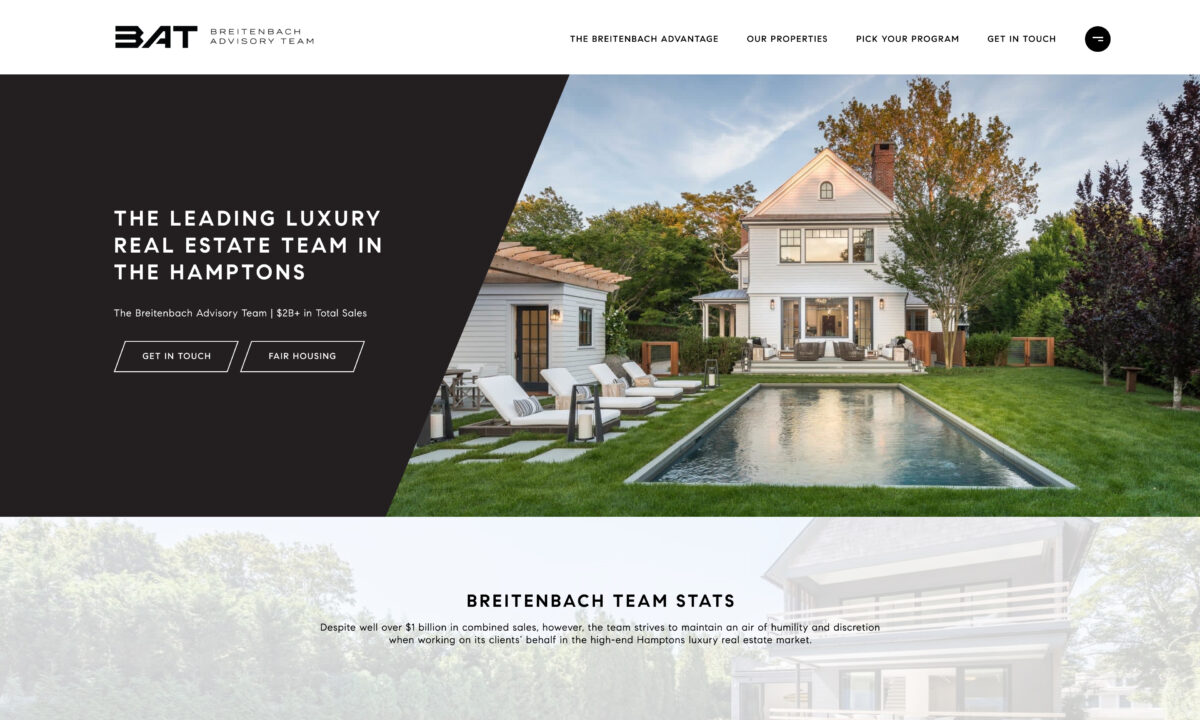The Future of Property: Patterns and Opportunities to See
As the genuine estate landscape advances, it ends up being progressively vital to recognize the emerging fads and possibilities that will certainly define the industry in the coming years. With these characteristics at play, a closer exam of the adjustments and approaches required for success discloses fascinating opportunities that could improve investment strategies and market habits.
Technical Developments in Realty
In recent years, the real estate market has welcomed a wave of technical advancements that are transforming traditional methods. One of the most noteworthy advancements is the surge of big information analytics, which allows real estate experts to assess market fads, forecast building worths, and recognize financial investment opportunities with unprecedented accuracy.
Additionally, virtual fact (VIRTUAL REALITY) and increased fact (AR) technologies are revolutionizing residential property advertising by offering immersive experiences for prospective purchasers and renters. These tools allow customers to perform online excursions of residential or commercial properties, thereby improving the search procedure and boosting consumer interaction. Additionally, blockchain innovation is obtaining traction as a way to safeguard deals and maintain clear documents, thus reducing fraud and accelerating the closing process.
Smart home modern technologies are also coming to be increasingly common, enabling house owners to check and control their homes remotely (Real Estate Lockhart). Collectively, these technical advancements are reshaping the landscape of actual estate, promoting a more effective, transparent, and customer-centric sector
Need for Lasting Qualities
As customers progressively focus on ecological obligation, the need for sustainable properties has actually risen in the property market. This change shows a more comprehensive societal pattern towards sustainability, with capitalists and homebuyers seeking residential or commercial properties that lessen environmental influence while making the most of energy effectiveness. Functions such as photovoltaic panels, energy-efficient devices, and lasting structure products are now checked out as vital instead of optional.

Additionally, the rise of green neighborhoods, which focus on walkability and access to public transportation, even more emphasizes this trend. These growths appeal to environmentally mindful buyers and promote a much healthier way of living.
As the demand for lasting residential or commercial properties continues to climb, market stakeholders need to adapt to these assumptions. By embracing cutting-edge methods and prioritizing sustainability, the realty sector can not only fulfill consumer demand but additionally add to an extra sustainable future.
Altering Customer Demographics

In addition, the aging population is reshaping need for housing. Child boomers are seeking downsized residences that supply availability and low upkeep, typically favoring try this website city settings with nearby amenities. This shift requires a concentrate on multi-generational real estate solutions that suit varying requirements.
Additionally, multiculturalism is playing a pivotal duty in property trends. Buyers from different backgrounds bring distinctive choices and assumptions, triggering developers to produce comprehensive environments that satisfy a larger target market. As these group changes remain to develop, property experts should adjust their methods to address the needs of these different customers. Understanding these altering demographics will be critical in identifying crafting and arising possibilities customized marketing strategies that reverberate with the diverse requirements these days's market.
Increase of Remote Job Effect
Increasingly, the increase of remote job is changing the realty landscape, triggering substantial changes in buyer choices and place selections. As employees delight in the flexibility of working from home, many are reevaluating their property demands, leading to a surge popular for properties in suv and rural locations. This fad is largely driven by the wish for even more spacious living environments that can accommodate office and a better lifestyle.
Additionally, metropolitan centers, once the prime focus for customers, are witnessing a gradual decrease popular as individuals focus on cost and access to nature. As a result, realty developers and investors are changing their focus toward buildings that provide home office areas, exterior amenities, and closeness to necessary solutions.
This advancing landscape necessitates a reevaluation of standard market techniques. Real estate specialists must adjust to the changing preferences of customers, emphasizing the value of way of life consider their advertising and marketing techniques. On top of that, building contractors are increasingly focusing on adaptable floor plans that satisfy the double needs like it of living and working, guaranteeing that they remain affordable in a rapidly altering market. The implications of remote work on property are extensive, shaping future fads and chances.
Financial Investment Opportunities in Arising Markets
Investment possibilities in emerging markets are constantly standing out from real estate capitalists seeking diversity and growth possibility. These markets, characterized by quick economic development, enhancing urbanization, and an expanding center class, existing distinct prospects for wise capitalists. Countries in Southeast Asia, Africa, and Latin America are seeing considerable facilities enhancements and favorable government plans, which further enhance their charm.
Property industries such as domestic, business, and logistics are experiencing heightened need because of urban migration and progressing customer preferences. Significantly, cities like Ho Chi Minh City, Nairobi, and Medellín are coming to be hotspots for financial investment as a result of their increasing economies and younger demographics.
Capitalists need to carry out thorough market analyses to determine essential patterns, such as shifts in population dynamics and economic security, which can affect residential property worths. Furthermore, partnerships with local realty firms can facilitate effective access and navigating in these markets.
Nevertheless, it's vital to be mindful of possible dangers, including political instability and regulatory challenges. By evaluating these aspects and embracing a long-term viewpoint, capitalists can effectively capitalize on the lucrative chances arising in these establishing regions.

Conclusion
Finally, the future of actual estate will certainly be considerably influenced by technical improvements, a growing emphasis on sustainability, and developing customer demographics. The surge of remote job is reshaping housing choices, specifically in rural areas. Furthermore, arising markets existing considerable investment possibilities for stakeholders willing to adjust to these adjustments. Browsing this changing landscape will certainly call for tactical partnerships and a keen understanding of market dynamics to profit from the fads shaping the market.
As the real estate landscape progresses, it ends up being significantly important to understand the arising fads and chances that will define the market in the coming years. One of the most notable innovations is the increase of huge data analytics, which enables genuine estate experts to assess market fads, forecast home values, and identify financial investment opportunities with unprecedented read review precision.As consumers increasingly prioritize ecological responsibility, the need for sustainable buildings has surged in the actual estate market. The ramifications of remote work on genuine estate are profound, shaping future trends and chances.
Investment opportunities in emerging markets are consistently attracting focus from real estate capitalists looking for diversity and growth potential.